Principal Investigator

Jerry Sheehan
Adjunct Faculty, SDSU
Mr. Sheehan has spent his professional career in university information technology organizations providing research infrastructure to enable scientific discovery. He has been a prior CC* PI while at Montana State for a high-speed networking science DMZ proposal. Jerry has experience creating and operating computational cores at Montana State University and San Diego State University. He has also collaborated actively with the Pacific and National Research Platforms since their inception and is currently on the Prototype National Research Platform External Advisory Board.
Co-Principal Investigators

Dr. Vivian Huangfu
SDSU, Director for AI4Business Lab
Dr. Huangfu has spent her professional career in higher education after she received her Ph.D. from the University of Arizona. She has yielded over 30 peer-reviewed scientific articles, especially top-tier AI conference proceedings and journals. She has served as committee members for Practice and Experience in Advanced Research Computing (PEARC), Annual Conference of the North American Chapter of the Association for Computational Linguists (NAACL), and Annual Meeting of the Association for Computational Linguistics (ACL).
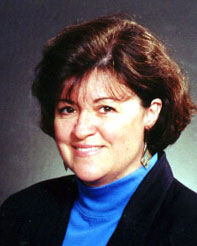
Dr. Mary Thomas
UCSD subcontractor PI
Dr. Thomas is a Computational Data Scientist and the HPC Training Lead. Dr. Thomas is responsible for developing and organizing educational and training materials to support the work of scientists running computational problems on SDSC HPC/CI systems (e.g. Expanse, Voyager) where her programs have held more than 110 training events, reaching more than 13,000 people.
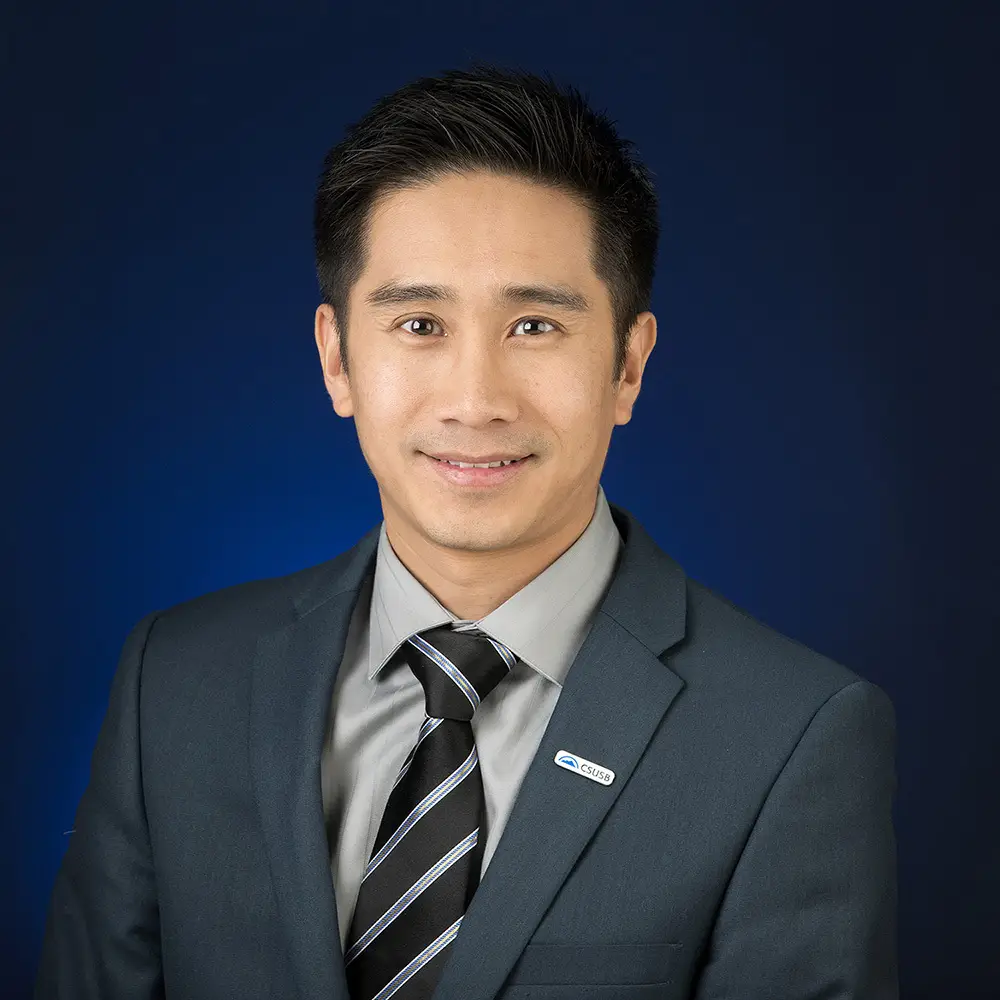
Gerard Au
CSU San Bernardino, Chief Information Officer
Mr. Au has spent his 23-year career in higher education organizations, with nearly 14 years supporting researchers at R1 Institutions. In his current role, he was instrumental in creating the first Science DMZ at CSUSB with support of the former Vice President and CIO. Prior to joining CSUSB, Gerard supported $41M of funded research from FY2010-13.
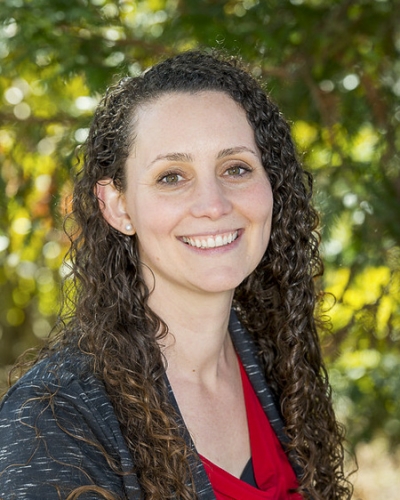
Bethany Gilden
Cal Poly Humboldt, Chief Information Officer
Ms. Gilden has spent her career in information technology managing IT teams supporting the full range of university functions, including research support. Bethany has proven skills in facilitation, managing change, leading projects, developing collaborations, fostering internal and external relationships, and fiscal management. She currently serves on the Prototype National Research Platform External Advisory Board.
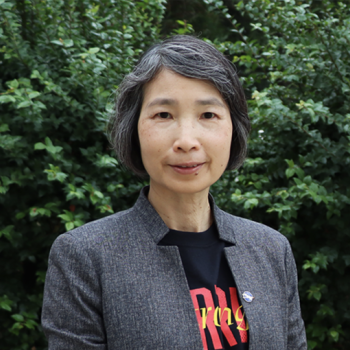
Haley Ye
CSU Stanislaus
Dr. Ye is a climatologist and a professor of geography, currently serving as the Dean of Graduate Studies and Research at Stanislaus State since 2021. Prior to this appointment, she served as the associate dean in the College of Natural and Social Sciences (NSS) at California State University, Los Angeles (Cal State LA). She earned several leadership certificates, including the HERS Institute 2019 (Denver) and six from the Harvard Graduate School of Education. She has been a NASA Summer Faculty Fellow and a faculty researcher affiliated with the Jet Propulsion Laboratory (JPL) since 2004.
Senior Personnel
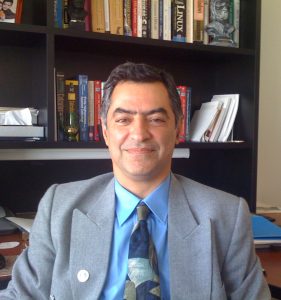
Dr. Faramarz Valafar
SDSU
Dr. Faramarz Valafar was trained as an Electrical and Computer Engineer, specializing on design and implementation of AI/ML models for High-Performance Computing (HPC) platform. As such, Faramarz has over 20 years of experience in running and using various HPC platforms. On the science front, Dr. Valafar has a longtime experience and a pioneer in parallel implementation of AI/ML models. He developed the first artificial neural network topology, designed specifically for parallel implementation on an SIMD HPC model.

Michael Farley
SDSU, Chief Technology Officer, Research
Mr. Farley has spent 22 years in higher education information technology organizations working both in technical and management roles. He has overseen enterprise application development and operations as well as managed data center operations. Mr. Farley has previously and continues to work with Nautilus personnel and users and joins their weekly meetings. Mr. Farley is a subcontractor senior personnel on OAC 2230127, and manages SDSU’s participation in the project.

Dr. Dung Vu
Senior Personnel, Lead High Performance Computing Analyst
Dr. Dung Vu earned a Ph.D. in Computer Science with a focus in multi-core parallel computing. He joined CSUSB’s HPC initiative to integrate CSUSB with Science DMZ. He is a campus champion, and works closely with faculty to assist them in deploying research software on AWS’s HPC, and Nautilus’s research cluster. He is a participant in OAC 2230127, as a CIP Fellow.
Partners

The CSU Office of the Chancellor supports TIDE to bring the computing architecture to the broadest extent across the CSU. As faculty and students at the 23 campuses grow their research in machine learning and AI, enabling the shared infrastructure provided via TIDE will be critical to ensuring access to the necessary resources. As the largest four-year public higher education system in the country, the CSU Chancellor’s Office is committed to amplifying the impact of TIDE to enhance student research opportunities by scaling access to the platform across California.
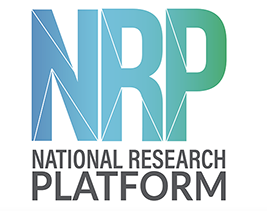
The National Research Platform is a partnership of more than 50 institutions led by researchers at UC San Diego with funding support from the National Science Foundation. For the TIDE proposal, the NRP will help support the computational core to be placed at San Diego State, collaborate on developing the support infrastructure for researchers, and provide additional computational resources from their existing grant on a needed basis.

CENIC, established in 1997, is a nonprofit organization operates the California Research and Education Network (CalREN), a high-capacity computer network with more than 8,000 miles of optical fiber. CENIC’s resources provide cost-effective, high-bandwidth networking supporting their member sites. For the TIDE proposal, CENIC is providing support for participating campuses that need high-speed data transfers, and is also a partner in the National Research Platform (NRP), which will help administer the TIDE computational core and provide “burst-ability” to other computational resources within their network.”
